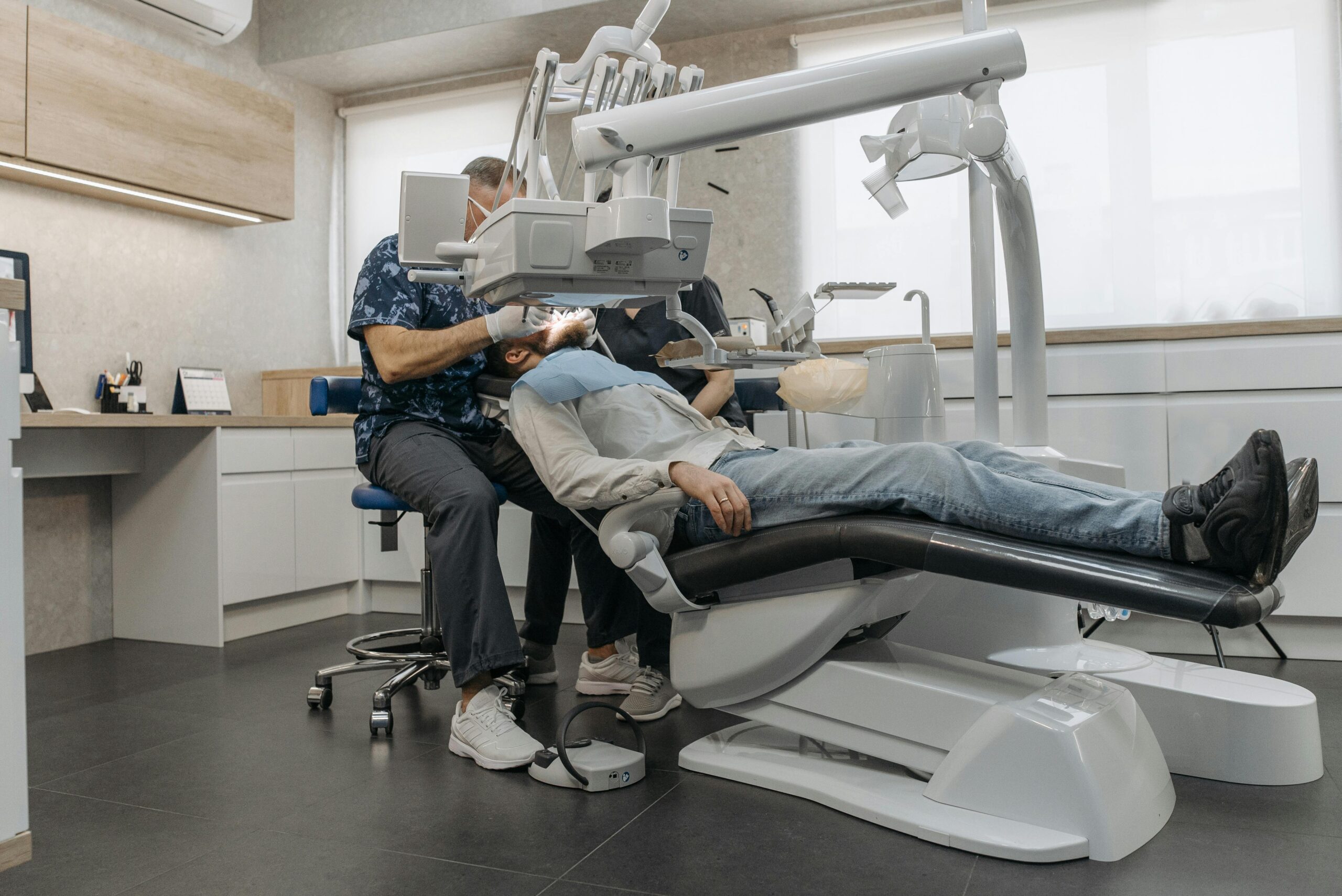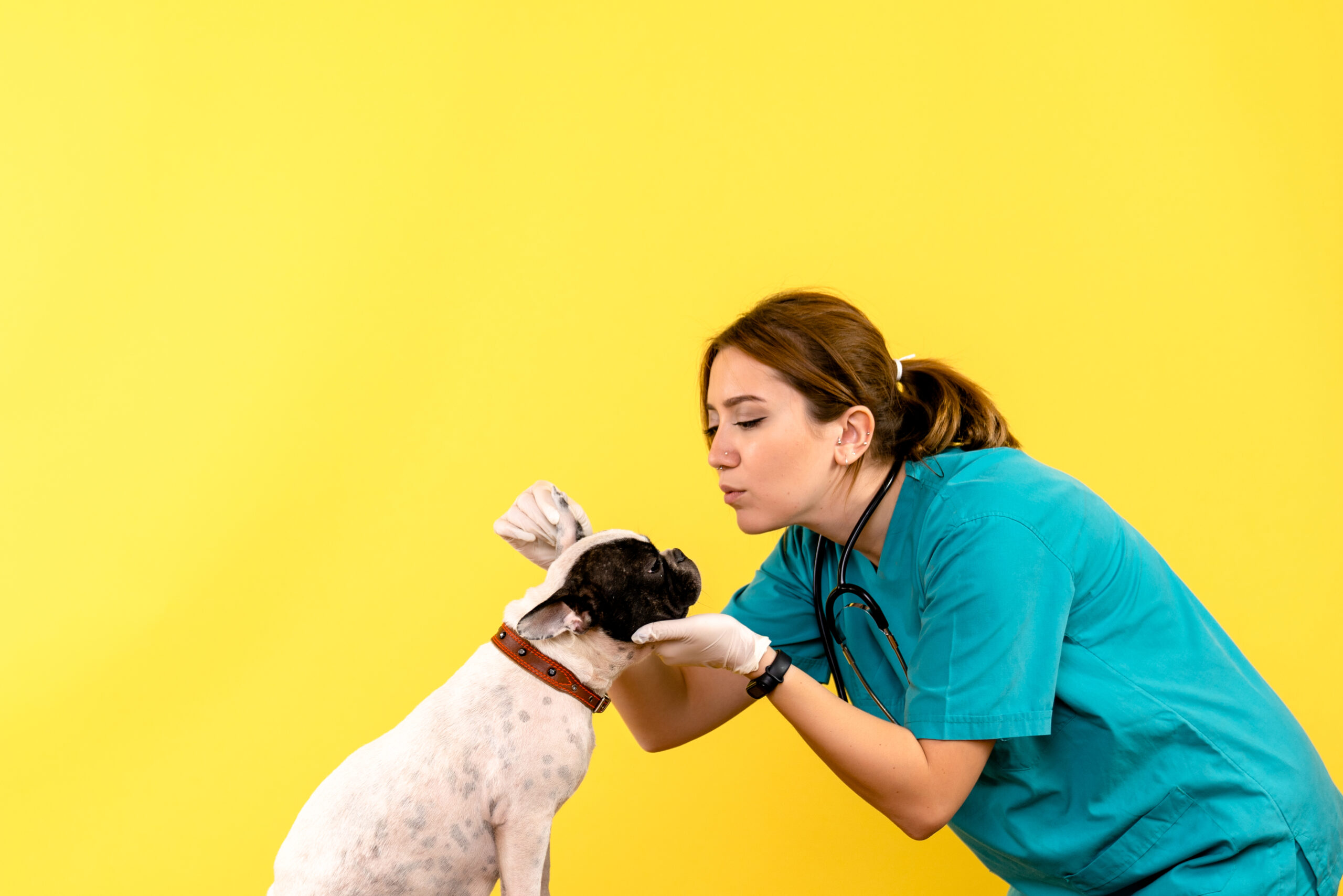How to become a Veterinary Technician: Complete Guide

Introduction
Becoming a veterinary technician is a rewarding career choice for those who love animals and want to help them. Veterinary technicians assist veterinarians in caring for animals, providing medical support, and performing various tasks in veterinary clinics and hospitals. This guide will help you understand the steps needed to become a veterinary technician, including education, training, and certification requirements.
Who is Veterinary Technician and what do Veterinary Technician do?
A veterinary technician is a trained professional who assists veterinarians in providing medical care to animals. They play a crucial role in veterinary clinics, animal hospitals, research facilities, and other animal care settings.
Responsibilities of a Veterinary Technician
Animal Care
Veterinary technicians are responsible for a wide range of tasks that ensure the well-being of animals. They assist in examinations and treatments, administer medications and vaccines, and monitor the health and behavior of animals. This hands-on care is essential for maintaining the health of pets and other animals.
Medical Procedures
In addition to direct animal care, veterinary technicians perform various medical procedures. They collect blood, urine, and tissue samples, conduct lab tests, and perform diagnostic imaging such as X-rays. They also assist veterinarians during surgeries and dental procedures, ensuring that everything runs smoothly and safely.
Record Keeping
Record keeping is another important responsibility. Veterinary technicians maintain detailed medical records for each animal, updating treatment plans and tracking progress. Accurate records are crucial for effective ongoing care and for making informed medical decisions.
Client Communication
Communication with clients is a key part of a veterinary technician’s role. They educate pet owners on animal care and treatment plans, providing guidance on nutrition, behavior, and preventive care. Effective communication helps pet owners understand how to keep their animals healthy and happy.
Emergency Care
In emergency situations, veterinary technicians provide first aid and emergency treatment, often assisting in stabilizing animals in critical condition. Their quick actions can save lives and provide much-needed support during urgent care situations.
Overall, veterinary technicians support veterinarians and ensure that animals receive the best possible care. Their work is vital in maintaining the health and well-being of animals, making them an essential part of any veterinary team.
What are the educational qualifications required to become Veterinary Technician?
To become a veterinary technician, you need to complete specific educational requirements. Here’s a detailed look at what you need:
High School Diploma or GED
The first step is to complete high school or obtain a GED. Focus on science courses like biology, chemistry, and math, as these subjects will provide a strong foundation for your further studies in veterinary technology.
Accredited Veterinary Technology Program
After high school, you need to enroll in an accredited veterinary technology program. These programs are usually offered by community colleges, technical schools, and some universities. The program should be accredited by the American Veterinary Medical Association (AVMA) to ensure it meets the required standards. These programs typically take two years to complete and result in an associate degree in veterinary technology.
Coursework and Practical Training
During the veterinary technology program, you will take courses in animal anatomy, physiology, pharmacology, and veterinary ethics. You will also learn about lab procedures, radiography, anesthesia, and surgical assisting. Along with classroom learning, you will receive hands-on training through clinical rotations or internships, which provide practical experience in real veterinary settings.
Veterinary Technician National Exam (VTNE)
After completing the veterinary technology program, you must pass the Veterinary Technician National Exam (VTNE). The VTNE is a comprehensive exam that tests your knowledge and skills in veterinary technology. It covers various areas, including pharmacy and pharmacology, surgical preparation and assisting, dentistry, and laboratory procedures.
By completing these educational steps, you can become a qualified veterinary technician, ready to assist veterinarians in providing high-quality care to animals.
Which licenses are required to become Veterinary Technician?
Most states require veterinary technicians to be licensed, registered, or certified. The requirements vary by state, so you should check with your state’s veterinary board. Typically, you need to pass the VTNE and may have to complete additional state exams or fulfill other criteria, such as background checks.
Where do Veterinary Technician work?
Veterinary technicians can work in a variety of settings, each offering different experiences and opportunities. Most commonly, they are employed in private veterinary clinics and animal hospitals, where they assist veterinarians with examinations, treatments, surgeries, and routine care, as well as interact with pet owners to provide education and support. Some veterinary technicians work in specialty and emergency animal hospitals, handling more complex medical cases and emergencies, and assisting with critical care, specialized surgeries, and advanced diagnostic procedures. Additionally, veterinary technicians can be found in research laboratories, where they help conduct studies related to animal health and medicine, collecting samples, and performing lab tests. They may also work in zoos, animal shelters, and wildlife rehabilitation centers, providing care for a wide range of animals and contributing to conservation efforts. Each of these settings allows veterinary technicians to use their skills and knowledge to improve the health and well-being of animals.
How long does it take to become a Veterinary Technician?
Becoming a Veterinary Technician typically takes about two to four years. The process involves completing an accredited veterinary technology program, which can be an associate degree (two years) or a bachelor’s degree (four years). After completing the educational requirements, graduates must pass the Veterinary Technician National Examination (VTNE) to become licensed or certified, depending on the state regulations. Additionally, some programs may include internships or practical experience, further preparing students for the profession.
How much does a Veterinary Technician make in a year?
The annual salary for a Veterinary Technician in the United States varies depending on factors such as location, experience, and workplace setting. On average, Veterinary Technicians earn between $30,000 and $40,000 per year. However, experienced technicians or those working in specialty clinics or urban areas may earn higher salaries, potentially exceeding $45,000 annually. Benefits and additional compensation, such as overtime, can also impact total earnings.
What hours do Veterinary Technician work?/ What are the work hours of Veterinary Technician?
Veterinary Technicians often work full-time hours, typically around 40 hours per week, but their schedules can vary widely. Many work in veterinary clinics or hospitals that operate outside of regular business hours, leading to shifts that include evenings, weekends, and holidays. Emergency and specialty clinics may require overnight shifts as well. Part-time positions are also available, offering more flexible hours. Overall, the work hours can be demanding and irregular, reflecting the needs of the animals they care for.
What qualities must a Veterinary Technician have?
A Veterinary Technician should possess the following qualities:
- Compassion: Ability to empathize with animals and their owners.
- Attention to Detail: Precision in tasks like administering medication and recording medical information.
- Manual Dexterity: Skill in handling instruments and animals safely.
- Physical Stamina: Strength to lift animals and endure long hours on their feet.
- Communication Skills: Ability to explain care instructions to pet owners and work effectively with veterinary staff.
- Problem-Solving Skills: Quick thinking in emergency situations and making informed decisions.
- Organizational Skills: Efficiently manage multiple tasks and maintain records.
- Technical Proficiency: Competence in using veterinary software, equipment, and diagnostic tools.
- Teamwork: Collaborative attitude when working with veterinarians and other staff.
- Patience: Calm demeanor when dealing with anxious animals and stressed owners.
What are some related jobs Veterinary Technician can have?
Veterinary Technicians can pursue a variety of related jobs, including:
– Veterinary Technologist: Specializing in advanced clinical tasks and often requiring a bachelor’s degree.
– Animal Care Supervisor: Managing staff and overseeing animal care operations in shelters or clinics.
– Laboratory Animal Technician: Working in research facilities to care for and manage laboratory animals.
– Zoo Veterinary Technician: Assisting veterinarians in caring for zoo animals.
– Wildlife Rehabilitator: Caring for injured or orphaned wildlife and preparing them for release.
– Animal Control Officer: Enforcing animal control laws and handling stray or aggressive animals.
– Pet Insurance Claims Adjuster: Reviewing and processing insurance claims related to veterinary care.
– Veterinary Sales Representative: Selling veterinary products and equipment to clinics and hospitals.
– Animal Behaviorist Assistant: Assisting with the study and modification of animal behavior.
– Animal Trainer: Training animals for specific tasks or behaviors, often in settings like obedience schools or entertainment.
Veterinary Technician Job Industry Challenges
The veterinary technician job industry is experiencing growth due to increasing pet ownership and advancements in veterinary medicine. This demand drives a need for more skilled technicians. However, the industry faces challenges such as high turnover rates and job-related stress due to emotionally and physically demanding work environments. Technicians often seek better pay and working conditions, prompting some to leave the field. Additionally, there is a growing emphasis on continuing education and specialization, requiring technicians to stay updated with new technologies and techniques. Despite these challenges, the profession remains vital to veterinary care, offering diverse opportunities for those passionate about animal health.
How to build a professional network in the Veterinary Technician industry?
Building a professional network in the Veterinary Technician industry involves actively engaging in industry-related activities and leveraging various platforms. Joining professional organizations such as the National Association of Veterinary Technicians in America (NAVTA) provides opportunities for networking through conferences, workshops, and seminars. Participating in continuing education courses and obtaining certifications can also help connect with peers and mentors. Utilizing social media platforms, particularly LinkedIn, to join relevant groups and engage with industry professionals is crucial. Additionally, seeking out internships and volunteering at clinics or animal shelters can foster relationships with experienced technicians and veterinarians, further expanding one’s professional network.
Get a high paying Veterinary Technician job.
If you’re a Veterinary Technician looking to elevate your career and secure a high-paying job, consider partnering with Pulivarthi Group. As a leading recruitment agency in the veterinary industry, Pulivarthi Group connects skilled professionals with top-tier opportunities that offer competitive salaries and excellent benefits. By signing up with Pulivarthi Group, you’ll gain access to exclusive job listings, personalized career advice, and a network of industry contacts. Don’t miss out on the chance to advance your career and achieve your professional goals. Join Pulivarthi Group today and take the first step towards a brighter future in veterinary medicine.
Related articles

Maximizing Productivity with Efficient Dental Office Management
Discover strategies to boost productivity in your dental office through effective management.

The Role of Temporary Staffing in Managing Dental Practice Workflows
Learn how temporary staffing can help streamline workflows and improve efficiency in dental practices.

Overcoming the Challenges of Veterinary Recruitment: Strategies for Success
Discover effective strategies to overcome the challenges of veterinary recruitment and attract top veterinary talent with our guide.

How to Ensure Compliance with Dental Industry Regulations
Find out essential steps to ensure your dental practice complies with industry regulations.
Apply for Jobs
-
26 Jul 2024

Netskope Database Engineer
Job Title: Netskope Database Engineer Location: Remote Duration: 6 months Company Overview: Pulivarthi Group is a premier global provider of staffing and IT technology solutions, renown
Remote : YesTax Terms: C2C, W-2, 1099 -
26 Jul 2024

Chatbot Developer
Job Title: Chatbot Developer Location: Remote Duration: Long Term Company Overview: Pulivarthi Group is a premier global provider of staffing and IT technology solutions, renowned for d
Remote : YesTax Terms: C2C, W-2, 1099 -
26 Jul 2024

WebSphere Administrator
Job Title: WebSphere Administrator Duration: Long-term Location: 100% Remote Company Overview: Pulivarthi Group is a premier global provider of staffing and IT technology solutions, ren
Remote : YesTax Terms: C2C, W-2, 1099 -
25 Jul 2024

Reltio MDM Developer
Job Title: Reltio MDM Developer Location: Remote Company Overview: Pulivarthi Group is a premier global provider of staffing and IT technology solutions, renowned for delivering exceptio
Remote : YesTax Terms: C2C, W-2, 1099 -
25 Jul 2024

Einstein AI Consultant
Job Title: Einstein AI Consultant Location: Remote Company Overview: Pulivarthi Group is a premier global provider of staffing and IT technology solutions, renowned for delivering except
Remote : YesTax Terms: C2C, W-2, 1099 -
25 Jul 2024

BICC Admin
Job Title: BICC Admin Location: Remote Company Overview: Pulivarthi Group is a premier global provider of staffing and IT technology solutions, renowned for delivering exceptional servic
Remote : YesTax Terms: C2C, W-2, 1099
For Employers
For Talent
Quick Links
-
1188 Stonecrest Blvd, Ste 103,
Tega Cay, South
Carolina, 29708
Socials
©Copyright 2024 Pulivarthi Group

